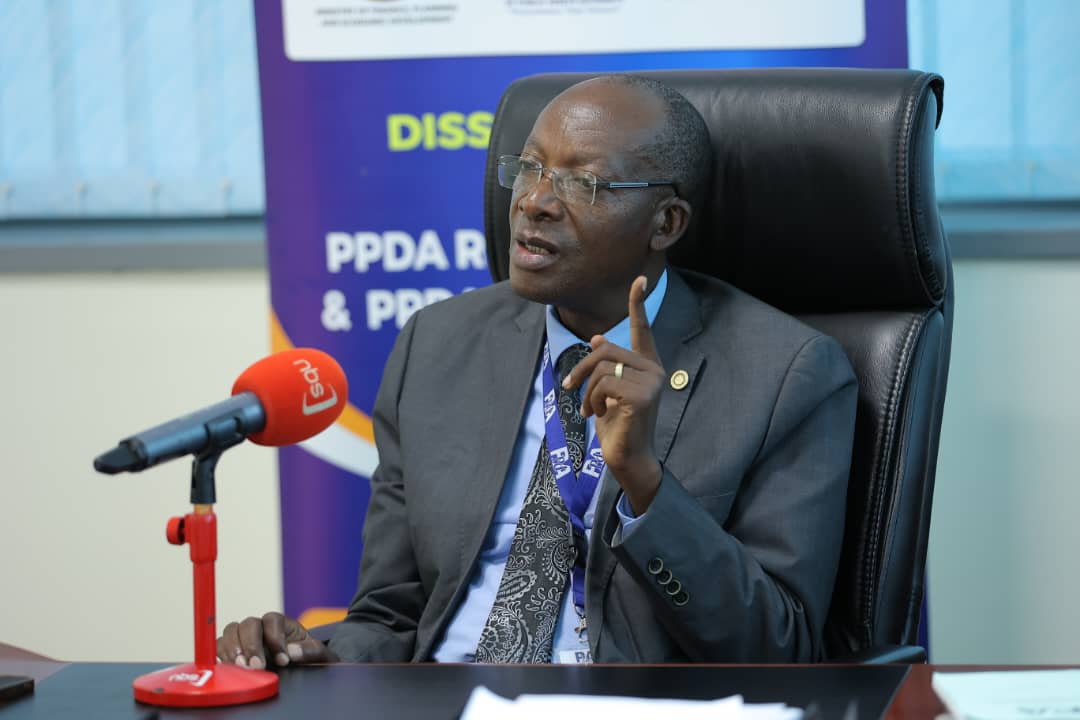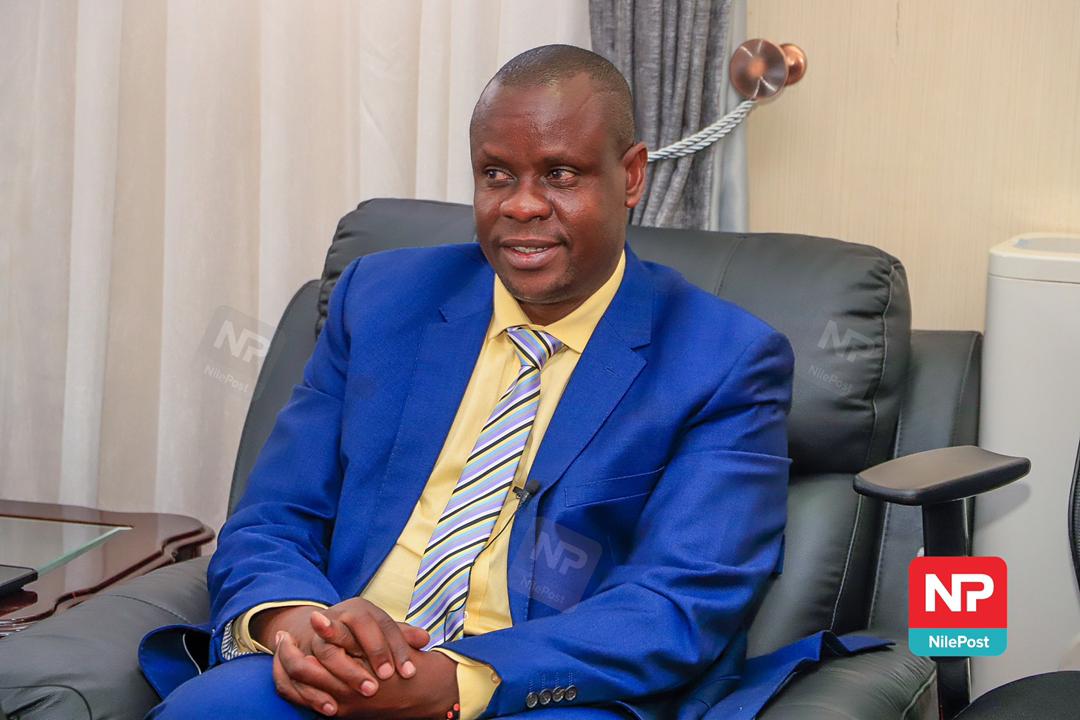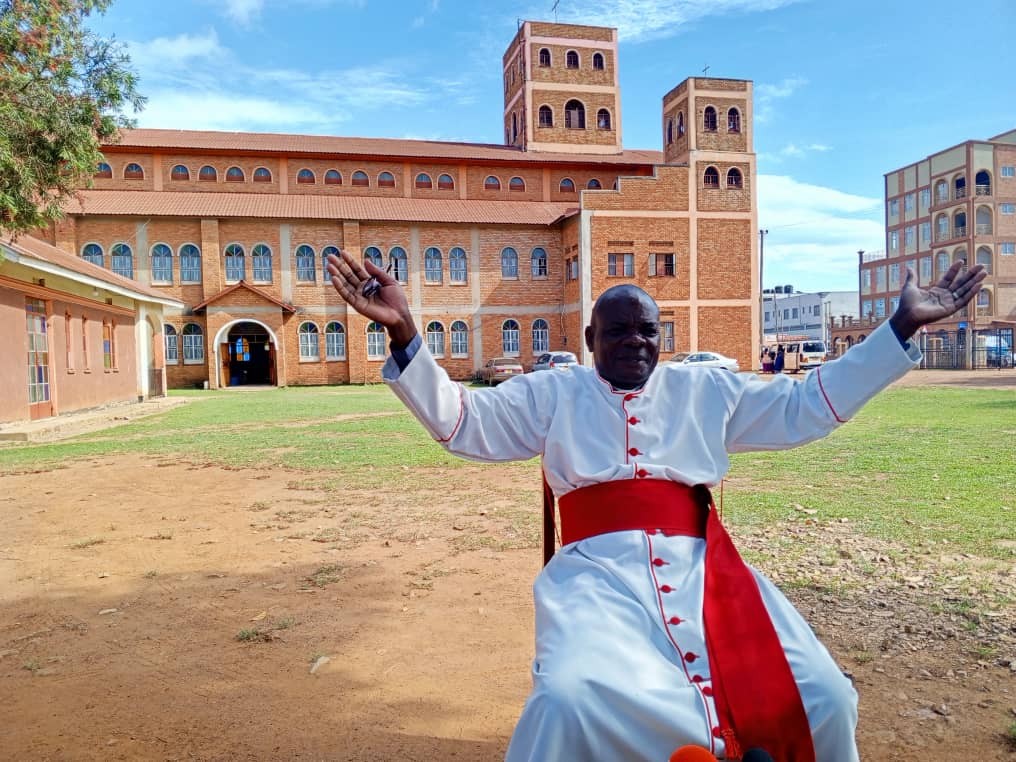Facebook blocks Australian users from viewing or sharing news
Facebook has blocked Australian users from sharing or viewing news content on the platform, causing much alarm over public access to key information.
Australians woke up on Thursday to find the Facebook pages of all local and global news sites were unavailable.
Several government health, emergency and other pages were also blocked on Thursday - something the tech giant later asserted was a mistake.
Australia's government said the ban threatened Facebook's "credibility".
Those outside of Australia are also unable to read or access any Australian news publications on the platform.
Facebook's move is in response to a proposed law in Australia which would make tech giants pay for news content.
Companies like Google and Facebook have argued the law doesn't reflect how the internet works, and unfairly "penalises" their platforms.
The Australian government has said it is proceeding with the law, which passed parliament's lower house on Wednesday.
"Facebook needs to think very carefully about what this means for its reputation and standing," Communications Minister Paul Fletcher told the ABC.
Facebook's action came hours after Google agreed to pay Rupert Murdoch's News Corp for content from news sites across its media empire.
Why is Facebook doing this?
Australia's competition regulator said it had drawn up the laws to "level the playing field" between the tech giants and publishers over profits.
But Facebook said the law left it "facing a stark choice: attempt to comply with a law that ignores the realities of this relationship, or stop allowing news content on our services in Australia".
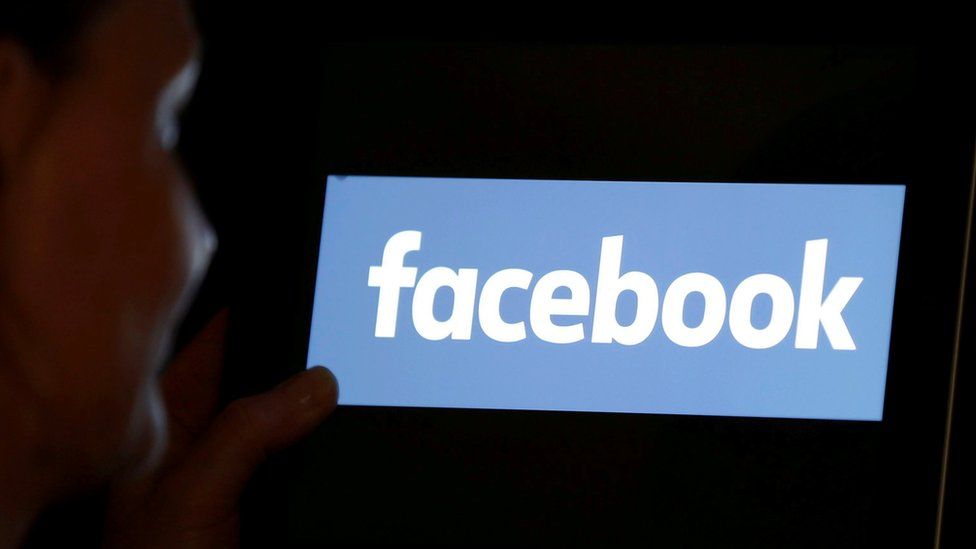
Australian publishers are also restricted from sharing or posting any links on their Facebook pages. The national broadcaster, the ABC, and newspapers like The Sydney Morning Herald and The Australian have millions of followers.
Facebook said that it helped Australian publishers earn about A$407m (£228m;$316m) last year through referrals, but for itself "the platform gain from news is minimal".
The law sought "to penalise Facebook for content it didn't take or ask for", said the company's local managing director William Easton.
What happened with the government sites?
Facebook's change also denied Australians access to the pages of many key government agencies, including police and emergency services, health departments and the Bureau of Meteorology.
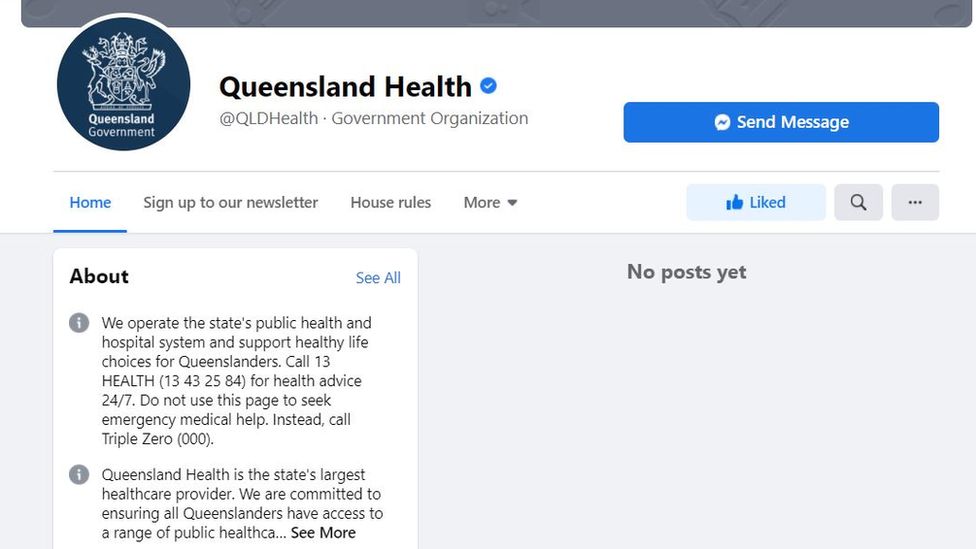 IMAGE COPYRIGHTFACEBOOK
IMAGE COPYRIGHTFACEBOOK
Other pages for charities, politicians, sports groups and other non-news organisations were also affected.
Facebook later released a statement which said these pages had been "inadvertently impacted" and would be reinstated, though it did not give a deadline.
A spokesperson said the company had "taken a broad definition" of the term "news content" in the law.
How have Australians responded?
The ban sparked an immediate backlash, with many Australians angry about their sudden loss of access to trusted and authoritative sources.
Several pointed out that Facebook was one crucial way that people received emergency news updates about the pandemic and national disaster situations.
"It feels obviously very restrictive in what Facebook is going to allow people to do in the future, not only in Australia but around the world," Sydney man Peter Firth told the BBC.
Another, Amelia Marshall, said she could not believe the firm's decision "in the middle of a pandemic", adding: "I've made the long-overdue decision to permanently delete my Facebook account."
Human Rights Watch' Australia director said Facebook was censoring the flow of information in the country - calling it a "dangerous turn of events".
"Cutting off access to vital information to an entire country in the dead of the night is unconscionable," said Elaine Pearson.
What is the government doing?
Australia's conservative government is standing by the law - which will be debated again in parliament today. It has broad cross-party support.
Treasurer Josh Frydenberg tweeted that he had a "constructive" discussion with Facebook chief executive Mark Zuckerberg on Thursday.
"He [Mr Zuckerberg] raised a few remaining issues with the government's news media bargaining code and we agreed to continue our conversation to try to find a pathway forward," he said.
Source: BBC





